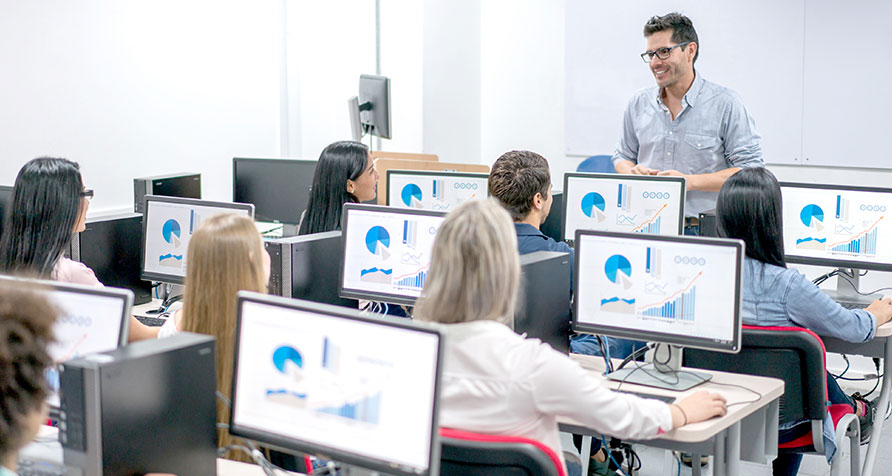










A New Era of Learning
by: BTM - Fri, 04 Apr 2025
AI is revolutionising education with personalised learning and automation, enhancing efficiency and accessibility. However, it raises concerns about ethics, data privacy and the future role of human teachers.
Artificial Intelligence has become a game-changer in education, offering students and teachers new tools to enhance learning experiences. AI-powered platforms are revolutionising traditional teaching methods by making education more interactive, adaptive and personalised. While its benefits are undeniable, the increasing reliance on AI in schools also comes with challenges that must be carefully managed.
One of the most significant contributions of AI in education is personalised learning. AI-driven platforms use data analysis to understand each student’s strengths and weaknesses, creating customised learning paths. Adaptive learning software, such as AI-powered tutoring systems, adjusts lesson plans based on student performance, ensuring that learners progress at their own pace.
This approach is particularly beneficial for students who struggle with traditional classroom settings. AI can provide additional support to those who need extra help while allowing advanced students to move ahead without waiting for the rest of the class.
Programmes like Carnegie Learning and Squirrel AI use machine learning algorithms to enhance student engagement, making lessons more interactive and efficient.

Beyond the classroom, AI is streamlining administrative tasks, enabling educators to focus more on teaching. AI-powered tools can automate grading, schedule management and attendance tracking, reducing the time spent on paperwork. Chatbots and virtual assistants can also provide instant answers to student queries about assignments, deadlines and course materials.
This automation not only improves efficiency but also helps educational institutions optimise their resources. Teachers can dedicate more time to mentoring and interacting with students rather than managing repetitive tasks.
Despite its advantages, the rise of AI in education presents several challenges. Data privacy is a major concern, as AI systems rely on large amounts of student data to personalise learning experiences. Schools must implement strict data protection measures to prevent misuse of sensitive information.
Another concern is the potential decline in human interaction in education. While AI can provide excellent academic support, it lacks the emotional intelligence and mentorship that human teachers offer. Learning is not just about acquiring knowledge but also about developing social and emotional skills, which require personal guidance from educators.

AI is undoubtedly shaping the future of education, making learning more accessible and efficient. However, its role should complement rather than replace traditional teaching methods. A balanced approach – where AI supports teachers rather than substitutes them – will ensure that students benefit from both technological advancements and human mentorship.
As AI continues to evolve, its integration into education must be guided by ethical considerations, data security and a commitment to student well-being. When used responsibly, AI has the potential to revolutionise learning, making education more inclusive, engaging and effective for generations to come.










